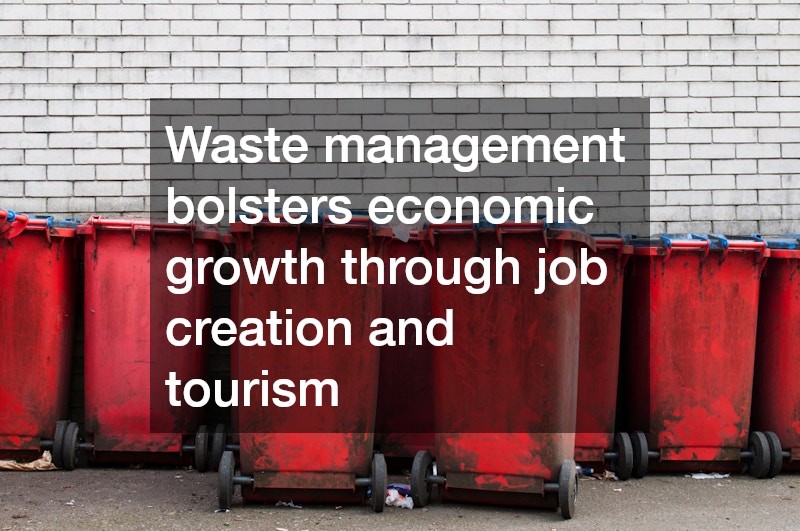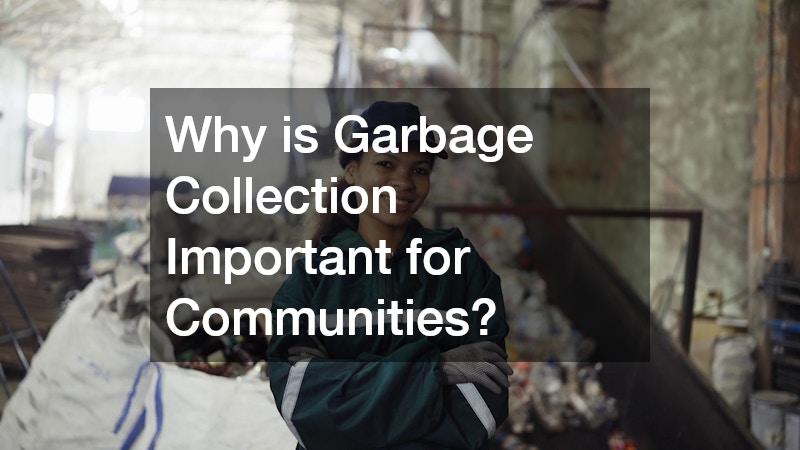Garbage collection plays a critical role in maintaining the health and well-being of communities worldwide. The systematic removal and management of waste are essential for ensuring clean environments, promoting public health, and supporting economic growth. This article explores the environmental, health, and economic benefits of effective garbage collection, highlighting how these efforts contribute to sustainable community development.
1. What are the Environmental Benefits of Garbage Collection?
1.1. Reduction in Pollution
Effective garbage collection is pivotal in reducing pollution levels in urban and rural areas alike. By removing household waste and industrial refuse promptly, communities can minimize the harmful effects of air, water, and soil pollution. Furthermore, when waste is managed properly, the risks of contaminants leaching into natural resources are significantly decreased, thereby protecting the environment.
The implementation of efficient waste management systems also contributes to lowering carbon emissions. For instance, reducing the occurrence of illegal dumping helps maintain air quality by preventing the release of methane gas from decomposing trash in unregulated landfill sites. These systematic efforts mitigate the impacts of pollution, thereby ensuring cleaner and healthier environments for both humans and wildlife.
Additionally, organized garbage collection prevents littering, which is a major pollutant in many communities. The presence of waste in public spaces can lead to increased pollution and degradation of landscapes, affecting both communities and ecosystems. Thus, regular garbage collection is a proactive measure in maintaining environmental quality and sustainability.
1.2. Promoting Recycling and Sustainability
Integrating recycling initiatives into waste management systems is crucial for sustainability. Recycling reduces the demand for raw materials, thereby conserving natural resources and energy. For example, recycling aluminum saves 95% of the energy required to produce new aluminum from raw materials, illustrating the economic and environmental value of such programs.
Moreover, recycling contributes to decreasing landfill use, thereby extending their operational lifespan and reducing the need for new sites. By diverting recyclable materials from landfills, communities can preserve natural landscapes and prevent habitat destruction. As awareness of environmental issues grows, recycling is becoming an integral part of sustainable waste management efforts worldwide.
2. How Does Garbage Collection Affect Public Health?
2.1. Prevention of Disease and Illness
Proper waste management is critical in preventing the spread of diseases and illnesses. Garbage that is not collected regularly can become a breeding ground for disease-carrying organisms such as bacteria and viruses. Municipalities that implement regular garbage collection help reduce the risk of outbreaks of diseases like cholera and dengue fever.
The accumulation of waste also attracts pests such as rats and insects, which are vectors for various diseases. By keeping communities clean, effective garbage collection serves as a frontline defense against public health crises. The presence of waste management infrastructure is therefore essential for reducing health risks associated with uncontrolled waste.
2.2. Pest Control
Garbage collection significantly contributes to pest control, which is vital for healthy communities. Accumulated waste provides ideal conditions for pests such as rats, cockroaches, and mosquitoes to breed. These pests pose health risks as they can carry and transmit diseases to humans.
By regularly collecting and disposing of waste, communities reduce the habitats available for pests, thereby lowering their populations. Effective waste management practices such as secure storage of waste prior to collection also minimize pest infestation. As a result, garbage collection is a fundamental component of integrated pest management strategies.
3. What are the Economic Impacts of Garbage Collection?
3.1. Cost of Waste Management Systems
Investing in waste management systems is an economic necessity for communities that wish to thrive. These systems require substantial financial resources for operation, including the costs of equipment, labor, and infrastructure maintenance. However, the benefits of such investments often outweigh the costs by preventing the economic damages associated with pollution and health crises.
Inadequate waste management systems can lead to environmental cleanup costs and public health expenses that burden local governments. By allocating funds for efficient garbage collection, municipalities can minimize long-term economic liabilities. Cost-effective waste management is thus a prudent strategy for economic sustainability.
3.2. Job Creation and Economic Opportunities
The waste management industry offers a diverse range of job opportunities, contributing significantly to local economies. Jobs in this sector range from collection and transportation to sorting and recycling, creating employment for people of varying skill levels. Moreover, the development of recycling facilities and waste-to-energy plants further expands economic opportunities.
Investments in waste management also drive innovation and technological advancements, fostering industries that contribute to cleaner and more efficient waste handling. Initiatives such as e-waste recycling and bio-composting stimulate market demand and entrepreneurship. Thus, garbage collection is not just an environmental endeavor but also an economic engine.
In summary, the importance of garbage collection for communities cannot be overstated. Improved waste management not only protects the environment and public health but also bolsters economic growth through job creation and tourism. By prioritizing efficient garbage collection systems, communities can ensure a healthier, more sustainable, and prosperous future for all their residents.

